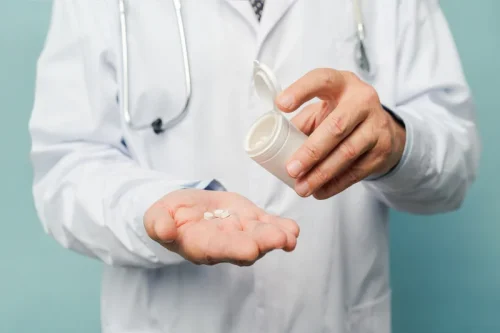
He holds no stock investments in businesses that overlap with the topic of his work, such as pharmaceutical, addiction treatment or alcohol beverage companies. At study entry, the participant disclosed that, in the past three months, she had taken prescription drugs (specifically ibuprofen) in greater amounts than prescribed to treat her pain or discomfort. On a standard 10-point pain scale, with 0 representing no pain and 10 representing “pain as bad as you can imagine,” the participant reported that in the past week, on average, her pain was a 6; she rated her worst pain in the past week a 7. By comparison, the average pain score among all 250 participants enrolled in the study was 5.3. The daily activity her pain most interfered with was sleep (rated 7 on 10-point pain scale).
Dosage and Side Effects of Ibuprofen
If you are trying to stop taking Ibuprofen after becoming addicted, it’s important to seek help from a healthcare professional. They can help you manage your withdrawal symptoms and provide support during the recovery process. Withdrawal from Ibuprofen addiction can be uncomfortable, but it is a necessary step towards recovery and improved health. To encapsulate, ibuprofen is commonly available as an over-the-counter drug. It’s essential to acknowledge the possibility of its abuse and resulting dependency. Being cognizant of the increased risk of heart and addiction indicators to ibuprofen and grasping the reasons behind such misuse are vital in averting it.
- Explore safer alternatives and consult with your healthcare provider to find the best solution for managing your chronic pain.
- The risks and physical side effects of Ibuprofen use and overdose can happen without warning while taking this medication.
- Complete the form below and we will complete your insurance verification and get back with you shortly.
- Psychological dependence occurs when a person believes they need a substance to cope with emotional or psychological issues.
- Tricyclic antidepressants like amitriptyline, along with serotonin norepinephrine reuptake inhibitors (SNRIs), are among the drugs commonly used to treat certain types of chronic pain.
Is Alcohol A Inflammatory?
In 2013, ibuprofen-containing Advil reached a sales volume of approximately $490.9 million in the U.S. alone. Upon further questioning, the woman revealed that she had been taking about 20 tablets of ibuprofen tablets daily (∼4 g/d) for the last three months to control her ankle pain. The woman developed severe hypokalemia (lower than average potassium level in her bloodstream) and distal RTA (a disease that occurs when the kidneys do not properly remove acids from the blood into the urine), most likely due to ibuprofen use. Over 5,000 people aged 65 and above in the U.S. died of a drug overdose in 2020, and more than twice that many (11,616) died of alcohol-induced causes. Prescription ibuprofen relieves pain, swelling, tenderness, and stiffness caused by rheumatoid arthritis (arthritis caused by swelling of the joints) and osteoarthritis (arthritis caused by a breakdown of the lining of the joints).
Weight Loss Medications: Mounjaro vs. Saxenda

It is part of the non-steroid anti-inflammatory medications (NSAIDs) that patients will often take to treat muscle pain, headaches and joint pain. In moderate doses and as long as patients do not take this medication daily, 60 percent of patients will respond positively to this medication. Your can you get addicted to ibuprofen healthcare provider will conduct a formal assessment of your symptoms and medical history in order to diagnose your condition, determine its severity, and develop a treatment plan. The staff will provide 24/7 care and supervision while the body, especially the liver, clears itself from alcohol.
Ibuprofen Dependency Side Effects & Symptoms

If you find yourself craving that next pill or taking opioids just in case pain strikes rather than because severe pain is present, talk to your advocate or your doctor. It might be a sign you are becoming addicted and should stop taking opioids. A person with a one-day prescription has a 6% chance of still taking opioids a year later. So it’s important to have a plan and support in place when a bottle of opioids comes home. It’s typically uncommon to develop a dependence on NSAIDs, but studies have found more than 11% of ibuprofen users take more than the prescribed dosage and face the risk of becoming dependent on the drug. Herein we describe a case of a participant enrolled in an observational cohort study of adults living with HIV and current substance dependence (DSM-IV criteria, past 12 months) or ever injection drug use.

Despite lacking the hallmarks of addiction seen with opioids or illicit drugs—namely traditional physical and psychological withdrawal symptoms—a sort of reliance on ibuprofen can still manifest. The roots of this dependency tend towards the emotional side rather than being strictly physiological. It often occurs when individuals use ibuprofen as an emotional crutch to deal with deeper issues beyond their experience of pain. At study entry, past 30-day illicit drug use (both prescription and non-prescription) was assessed using the Addiction Severity Index (Zanis et al., 1994). The participant reported no illicit or nonmedical drug use in the past 30 days, with the exception of ibuprofen, which she was prescribed for pain by her physician and reported taking in amounts greater than prescribed.
Strategies for Overcoming Ibuprofen Dependency
Physical Dependence


Leave a Reply